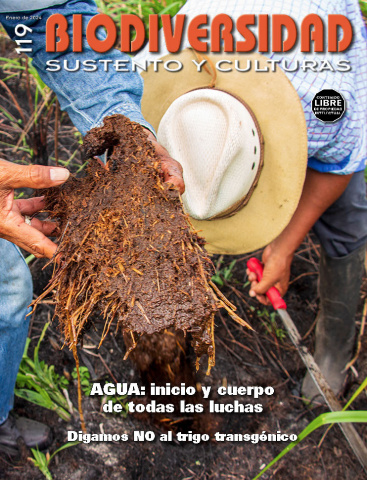Alimentación y Agricultura: FAO, CGIAR, CFS
The United Nations Food and Agricultural Organization (FAO): FAO is a United Nations specialized agency which mandate is to raise levels of nutrition, improve agricultural productivity, better the lives of rural populations and contribute to the growth of the world economy. ETC Group relates primarily to the FAO Commission on Genetic Resources for Food and Agriculture, and the negotiations for a multilateral system of conservation and exchange of genetic resources for food and agriculture, known as the International Treaty on Plant and Genetic Resources for Food and Agriculture. Aside from responsibility for the International Treaty, the FAO Commission oversees the FAO-CGIAR Trust Agreement and provides policy oversight for the germplasm collections included in that agreement.
FAO Website: http://www.fao.org/index_en.htm
The Consultative Group on International Agricultural Research (CGIAR): The Consultative Group on International Agricultural Research (CGIAR) is an informal network of 16 international agricultural research centres which manages aprroximately 600,000 agricultural seed samples. It is the most influential agricultural research body in the South, and thus affects food and agricultural development policies for resource-poor farmers worldwide. In 1994, most of the crop germplasm held in CGIAR gene banks was placed under the auspices of the FAO, to be held in trust by the world community. ETC is engaged in ongoing work related to the science, governance and patent policies of the CGIAR.
CGIAR Website: http://www.cgiar.org/
The Committee on World Food Security (CFS): Intense negotiations and strong pressure from ETC Group and many long-standing allies led, in October 2009, to the reorganization of the UN Committee on Food Security (CFS) to become the Rome-based acknowledged intergovernmental policy and program forum for the UN Food and Agriculture Organization (FAO), International Fund for Agricultural Development (IFAD), World Food Program (WFP) and the Consultative Group on International Agricultural Research (CGIAR). In the new CFS structure, civil society organizations now have a unique, formally-recognized role that allows us to participate with the same status as governments in all meetings and negotiations although we are not allowed to vote.
CFS Website: http://www.fao.org/cfs/en/












